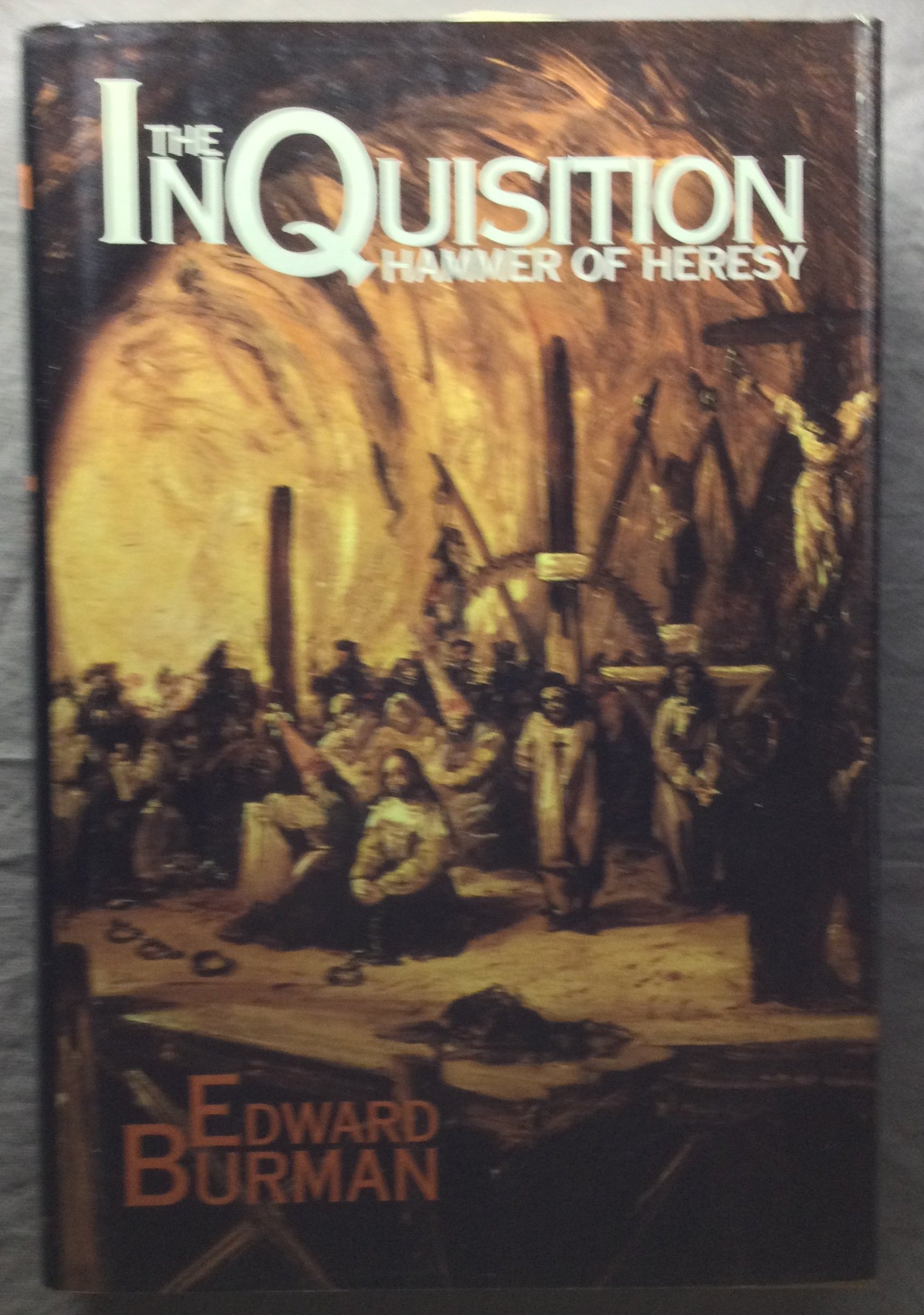 Image 1 of 1
Image 1 of 1


The Inquisition | The Hammer of Heresy
Author - Edward Burman
Year published - 1984
Published by - Dorset Press
Book Format - Hard Cover
Genre - History In General
Summary
The often loosely used term "Inquisition" covers a complex and amorphous phenomenon of fundamental importance in the history of Western Europe. As an institution, it came into being early in the thirteenth century. Its effects are still felt. Today. This panoramic study offers the general reader a description and interpretation of the Inquisition and its methods based on two essential moments in its history: the gradual establishment of the Holy Office and its dramatic reflowering three hundred years later. Such an approach shows how the Inquisition functioned as an elastic response to heretical and political pressure, and how its power was in direct proportion to specific geographical and temporal needs. In the course of his survey Edward Burman describes the crucial role of the Dominican Order in the work of the Inquisition and demonstrates that the Franciscans--in spite of the gentle piety of their founder-- were also involved in stamping out heresy. In addition he provides a wealth of fascinating detail concerning the Inquisitors' methods (including torture, confiscation of property and the terrible trials for the dead), their manuals, the Inquisition in Italy, the Inquisition in France from the Albigensian Crusade to the burning of Joan of Arc, the persecution of witches, the Spanish Inquisition, the economic and cultural effects of the Inquisition in Europe, and the legacy of the Inquisition. Drawing on an array of sources, many of them little know to English readers, the author paints a terrifying but compelling picture of one of the most efficient systems of repression ever devised
Notes -
Author - Edward Burman
Year published - 1984
Published by - Dorset Press
Book Format - Hard Cover
Genre - History In General
Summary
The often loosely used term "Inquisition" covers a complex and amorphous phenomenon of fundamental importance in the history of Western Europe. As an institution, it came into being early in the thirteenth century. Its effects are still felt. Today. This panoramic study offers the general reader a description and interpretation of the Inquisition and its methods based on two essential moments in its history: the gradual establishment of the Holy Office and its dramatic reflowering three hundred years later. Such an approach shows how the Inquisition functioned as an elastic response to heretical and political pressure, and how its power was in direct proportion to specific geographical and temporal needs. In the course of his survey Edward Burman describes the crucial role of the Dominican Order in the work of the Inquisition and demonstrates that the Franciscans--in spite of the gentle piety of their founder-- were also involved in stamping out heresy. In addition he provides a wealth of fascinating detail concerning the Inquisitors' methods (including torture, confiscation of property and the terrible trials for the dead), their manuals, the Inquisition in Italy, the Inquisition in France from the Albigensian Crusade to the burning of Joan of Arc, the persecution of witches, the Spanish Inquisition, the economic and cultural effects of the Inquisition in Europe, and the legacy of the Inquisition. Drawing on an array of sources, many of them little know to English readers, the author paints a terrifying but compelling picture of one of the most efficient systems of repression ever devised
Notes -




